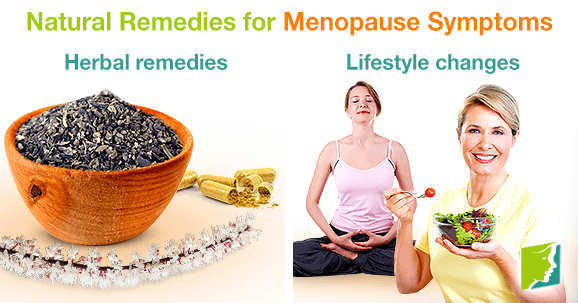There is a range of natural remedies to choose from to treat menopause symptoms, and it can be difficult to know what treatment is right for you and will be the most effective for your symptoms.
Choosing the right option depends on several factors, including your symptoms, your medical history, the side effects of the natural remedies you choose to take, and other individual concerns. It is a good idea to consult a doctor for guidance.
What Are the Alternative Options for Treating Menopause Symptoms?
Alternative options range from relaxation techniques such as massages, acupuncture, and aromatherapy, to herbal remedies like phytoestrogenic and hormone regulating supplements.
Herbal remedies are increasing in prominence in the West because they provide a less risky alternative to the prescription treatment called hormone replacement therapy (HRT).It may increase the risk of breast cancer and heart disease, and as more information has come out about HRT, doctors are recommending it less and prescribing it in smaller doses. Natural remedies for menopause symptoms still have risks and side effects so it is still important to talk to your doctor before you start taking them.
Two popular classes of natural remedies for menopause symptoms are phytoestrogenic and hormone-regulating supplements.
Phytoestrogen supplements
Phytoestrogen is an estrogenic components produced by plants and in the human body these compounds bind to estrogen receptors to produce either an estrogen or anti-estrogen response in the body. Scientific research shows that phytoestrogen supplements, such as black cohosh supplements, may treat menopausal symptoms for up to a year.
Phytoestrogens are also present in foods such as soy products and some fruits and vegetables. These phytoestrogens may also help alleviate some symptoms of menopause and some research shows that women who have diets rich in soy and other phytoestrogen containing foods are less likely to get osteoporosis and suffer from hip fractures.
Hormone-regulating supplements
There are also supplements beyond the phytoestrogen supplements, like Macafem. These supplements do not contain phytoestrogen, but have been traditionally used to balance hormones because some people believe they naturally stimulate hormone production.
Lifestyle Changes to Soothe Menopause Symptoms
Changes to your daily routine that can remedy menopause symptoms and improve your quality of life include:
Rhythmic breathing. Practice taking slow, deep breathes that originate in the stomach.
Diet. Eat a balanced diet that is rich in soy, protein, fruit, and vegetables.
Vitamins. Especially focus on getting your daily recommended vitamin E and B intake.
Avoid triggers. You understand your body the best, so if something is triggering your symptoms try to work out a way to avoid or minimize it.
Exercise. Regular activity is essential to keep your body healthy.
Reduce stress. Consider meditation, yoga, therapy, or other methods of stress relief.
For many women, the best way to combat menopausal symptoms is a combination of lifestyle changes and alternative medicine. Click on the following link for more information about treatments for menopause symptoms.
Sources
- Bacciottini, L., Falchetti, A., Pampaloni, B., Bartolini, E., Carossino, A. M., & Brandi, M. L. (2007). Phytoestrogens: food or drug? Clinical Cases in Mineral and Bone Metabolism, 4(2), 123-130.
- Mayo Clinic Staff. (2013). Black Cohosh. Retrieved from http://www.mayoclinic.org/drugs-supplements/black-cohosh/evidence/hrb-20058861
- Patisaul, H. B., & Jefferson, W. (2010). The pros and cons of phytoestrogens. Frontiers in Neuroendocrinology, 31(4), 400-419. doi:10.1016/j.yfrne.2010.03.003




